Documentary: “The Journey of Man, a Genetic Odyssey” Essay
- To find inspiration for your paper and overcome writer’s block
- As a source of information (ensure proper referencing)
- As a template for you assignment
The world is diverse in every aspect. There are millions of living species in the world. Many of them have been discovered while others still remain a mystery. Human beings have elicited the greatest form of diversity in terms of the reaction of the differences in people of the world. Many studies have been conducted on the subject. Some try to piece together the origin of this diversity, and others try to teach us how to embrace the differences that are in the world. It is imperative that people do acquire this knowledge as it is not only but also empowers people.
The Journey of Man, a Genetic Odyssey by Spencer Wells is an informative documentary where the author explains his theory of the origin of man using genetics. The hypothesis is intensely intriguing and, while he presents convincing facts on the matter, I would take the information with a grain of salt. Wells says that all the people originated from a single man who passed his Y chromosome to future generations, and they continued passing them. Along the way, the genes developed mutation, which he attributes to the differences in the races of the world today. People moved from Africa 50000 years ago and spread across the world. As they did this, the mutations in their bodies took place, and this caused changes in the skin color.
The author states that racial differences are only skin deep and that genetic technology shows that it will lead to convergence, and people will look the same. There has been controversy in the hypothesis because scientists have been found to be bowing to the social pressures of the day. In this case, Wells agrees to prevent racism. Many critics have cited massive differences in races and utterly refuting the case of racial differences being skin deep. An instance given is using intellectual capabilities that have shown particular races to have this characteristic. Moreover, experimentation with dogs, which have high genetic similarity to human beings, shows significant differences in intelligence, and body formation. The critics have shown that the book is merely a distortion of scientific facts to favor the social aspiration of the world.
The world is becoming diverse, and there is a continued embracement of the differences in people. Modern times have seen the disregard of judgment as a result of one’s belonging. This has been clearly shown in the election of the United States President, who has a remarkably diverse heritage and belongs to the minority. Indeed, demographic statistics have shown the growth of cultures in the United States. As mentioned, there is a vast diversity in the world in gender, sexual orientation, age race, ethnicity, and social class. Their recognition of this diversity requires one to be sensitive in order not to sound discriminative or a stereotype towards another’s classification. It is imperative that one remains sensitive to this in order to prevent conflict. There have been many differences that are observed in the cultures of different people.
For instance, values embraced by the various age groups, tolerance, political organizations of various ethnic groups and cultures. On the other hand, there have been similarities in all groups of the world, especially concerning morality and the value of human life. The author presents a convincing case for the reader. Indeed, the text is immensely relevant because people have to know how to get along with people who are of different groups. This will prevent unnecessary conflict and ensure that parties have the skills to do this effectively. The author mentions the need for motivation to learn and get along with others. This, I believe, is immensely vital and may be lacking due to raising and stereotype thoughts and attitudes towards various groups.
These works are related in various ways. They attempt to explain the subject of diversity, one from a historical perspective and the other in a futuristic approach. The books agree in various areas. For instance, there is the case of the importance of language in culture. Wells says that they are not only a way for communication, but can also tell of the culture and the speaker’s intellectual capability. Wells shows that, after the exodus from Africa, the split group lost the click sounds of the San dialect. However, Alghamdi shows that there is a universal language that is communicated non-verbally.
He gives the example of a non-English speaker who asks for directions from a shopkeeper who cannot speak English. The latter explains this but also points to a map that they could use. They could tell it was a tourist. We can also see the continuous growth and evolution of diversity. Will shows that people originally stayed in the Kalahari as the San, then some moved away, and then there was the creation of races. Alghamdi then says that several diversities are sexual orientation and also social class. These are differences that have come up in the modern world due to change in social norms and trade.
Diversity is indeed wide. Through modern science, we are able to trace the history of mankind. It is imperative that we embrace these diversities and appreciate each other as we come. This is to prevent conflict and tensions among people.
- Short Summary
- Summary & Analysis
- Literary Devices and Symbols
- Questions & Answers
- Homer: Biography
- African-Americans in the Documentary "Pride"
- Disease Topic in the Docudrama "And the Band Played On"
- Manhood in Homer’s Poem The Odyssey
- Father-Son Relationship in The Odyssey by Homer
- “Odyssey: The Castaways” Podcast Summary
- Documentary Analysis "America’s Safest Tires"
- "Daughter from Danang" a Film by Gail Dolgin
- The Documentary "Taboo: Blood Bonds"
- "The Other F-Word": Documentary Film
- Social Determinants of Health: Documentary "Unnatural Causes"
- Chicago (A-D)
- Chicago (N-B)
IvyPanda. (2020, June 2). Documentary: "The Journey of Man, a Genetic Odyssey". https://ivypanda.com/essays/documentary-the-journey-of-man-a-genetic-odyssey/
"Documentary: "The Journey of Man, a Genetic Odyssey"." IvyPanda , 2 June 2020, ivypanda.com/essays/documentary-the-journey-of-man-a-genetic-odyssey/.
IvyPanda . (2020) 'Documentary: "The Journey of Man, a Genetic Odyssey"'. 2 June.
IvyPanda . 2020. "Documentary: "The Journey of Man, a Genetic Odyssey"." June 2, 2020. https://ivypanda.com/essays/documentary-the-journey-of-man-a-genetic-odyssey/.
1. IvyPanda . "Documentary: "The Journey of Man, a Genetic Odyssey"." June 2, 2020. https://ivypanda.com/essays/documentary-the-journey-of-man-a-genetic-odyssey/.
Bibliography
IvyPanda . "Documentary: "The Journey of Man, a Genetic Odyssey"." June 2, 2020. https://ivypanda.com/essays/documentary-the-journey-of-man-a-genetic-odyssey/.
Academia.edu no longer supports Internet Explorer.
To browse Academia.edu and the wider internet faster and more securely, please take a few seconds to upgrade your browser .
Enter the email address you signed up with and we'll email you a reset link.
- We're Hiring!
- Help Center


The Journey of Man: A genetic odyssey

2005, American Journal of Human Biology
Related Papers
Deborah Heath , Alan Goodman , Susan Lindee
Natalie Djohari
ESSAYS IN THE PHILOSOPHY OF HUMANISM
Anthony Cruz Pantojas
The positionality of the human subject and the role of place is necessary before analyzing colonialism and the structures of (religious) hegemony. Furthermore, this positioning of the human must include the awareness of the body, movement, rituals, and the use of language. All these elements are situated as part of human experience and not as a separate subject. Colonial subjectivities have touted rationality and the mind/body dualism. If Humanism presupposes a stance that inheres ethics, liberation, and critical inquiry, then the liberatory imaginary must carefully heed Indigenous knowledge and be careful not to appropriate these discursive formations for the interest of colonial domination of Christian conquest.
Gelson Silva
MR. FREEMAN'S DUTCHMEN.* T h r e e of the greatest authorities on the races which are said to inhabit the British Islands are Mr. Edward Augustus Freeman, Mr. Samuel Lysons, and Mr. Tony Weller. " If he ain't got enough out on 'em, Sammy, to make him free of the water company for life," said Mr. Weller, " I'm one Dutchman and you're another, and that's all about i t " And in this very strong expression of opinion appear not only Mr. Weller's anthropological views, but also his belief that to the mind of any British hearer nothing can appear so absurd as the identification of a Dutchman with a Briton. In fact, he was only repeating a British proverbial expression. Mr. Lysons tells us that Britons are Jews, and holds, so to speak, an intermediate position between Mr. Weller and Mr. Freeman; for the latter tells us, unconditionally and dogmatically, according to his custom, that he is a Dutchman, and that we are all Dutchmen too. And we are prepared to admit that, if Mr. Freeman can write con sistently, if he knows what he means by the terms which he uses, if he has carefully considered the relation with other Aryan languages of the languages spoken in this country, either before the Norman Conquest or after, if he knows either how to reason or how to write with candour, then he is a Dutchman, and there is no Briton who is not Dutch. In reviewing Mr. Freeman's work, so far as it has an anthropolo gical bearing, we shall find it necessary to employ mere verbal criti cism in a manner hardly befitting a scientific publication. The fault, however, is not ours, but that of the work reviewed; and we trust that, if we cannot add to the knowledge, we may at least contribute to the amusement, of our readers. We have long been arguing that a strict definition of terms is one of the greatest wants of anthro-* The History of the Norman Conquest of England: its Causes and its Re sults, By Edward A. Freeman, M.A., late Fellow of Trinity College.
Social Anthropology
Journal of the History of the Behavioral Sciences
Murray Leaf
Katherine C. MacKinnon
Ieteke Witteveen
This is the last part of a paper entitled, "concerning the content and the political role of the social sciences in developing countries." it centers around the following question: is it not true that a discussion about ethics and attempts to formulate a professional code obscure a far more fundamental question, namely the justification of the practice of social science? Regarding an "ethical hassle," reference is made to the 1971 report, "to evaluate the controversy concerning anthropological activities in Thailand," about which great unrest had developed in the us. The question of ethics is not seen as an isolated problem, but as pointing directly to the essence of science itself and its essential components: the choice of the object, method of research, and method of application. By putting forward empirical material (in the original article) it is illustrated to what misery science can contribute when questions like "for whom" and "wh...
Reviews in Anthropology
Herbert S Lewis
History of Anthropology Newsletter
Nicholas Barron
RELATED PAPERS
rianbow qiu
Master's Dissertation
Rafael Ongaratto
José Medina Rosas
checo el cositia
Energy & Environment
Panos Chountalas , Stamatis Chrysikopoulos
Ikki Beliansyah
shaamal avhad
IFAC-PapersOnLine
Khaled Mesghouni
Oliva Menozzi
BMC Public Health
Cristina Bisson
Papers in Literature
Beata Morzyńska-Wrzosek
Papatya Karakurt
Journal of Chromatography A
jean-louis FANLO
Jhon Naibaho
Berkala Fisika
AHMAD ZAENUDIN
Communications of the ACM
Cornelis Tanis
khaled sahraoui
RELATED TOPICS
- We're Hiring!
- Help Center
- Find new research papers in:
- Health Sciences
- Earth Sciences
- Cognitive Science
- Mathematics
- Computer Science
- Academia ©2024

The Journey of Man: A Genetic Odyssey
by Spencer Wells
Around 60,000 years ago, a man—genetically identical to us—lived in Africa. Every person alive today is descended from him. How did this real-life Adam wind up as the father of us all? What happened to the descendants of other men who lived at the same time? And why, if modern humans share a single prehistoric ancestor, do we come in so many sizes, shapes, and races?
Buy from Amazon
Description
Examining the hidden secrets of human evolution in our genetic code, Spencer Wells reveals how developments in the revolutionary science of population genetics have made it possible to create a family tree for the whole of humanity. Replete with marvelous anecdotes and remarkable information, from the truth about the real Adam and Eve to the way differing racial types emerged, The Journey of Man is an enthralling, epic tour through the history and development of early humankind.
You may also like
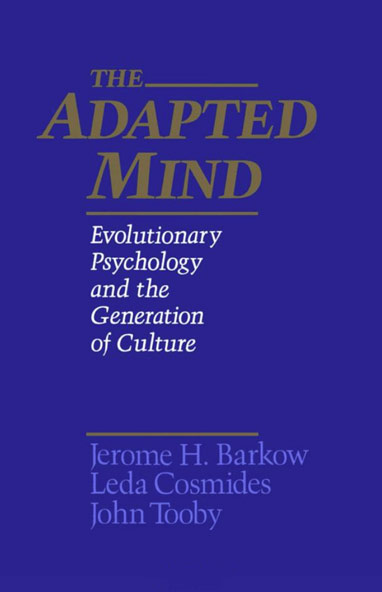
The Adapted Mind: Evolutionary Psychology and the Generation of Culture
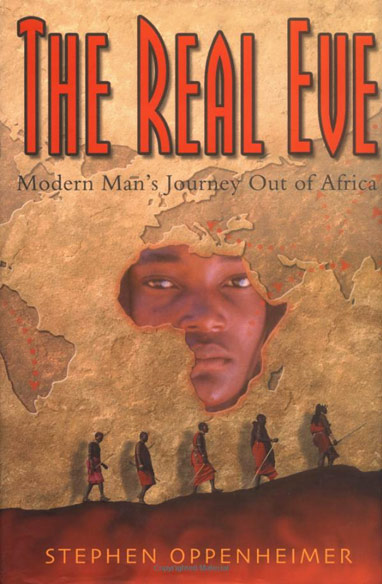
The Real Eve: Modern Man’s Journey Out of Africa
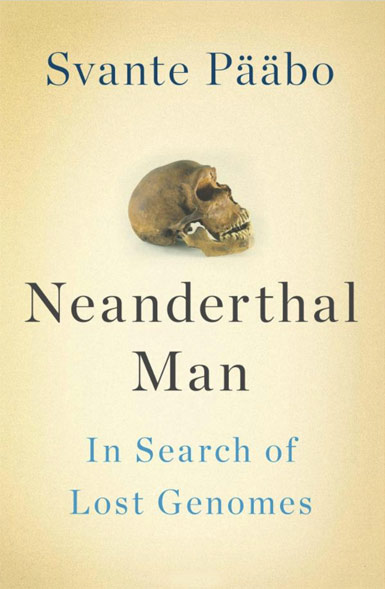
Neanderthal Man: In Search of Lost Genomes
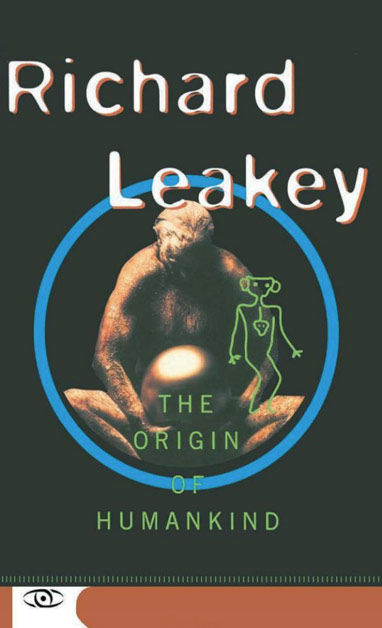
The Origin Of Humankind
We’re fighting to restore access to 500,000+ books in court this week. Join us!
Internet Archive Audio

- This Just In
- Grateful Dead
- Old Time Radio
- 78 RPMs and Cylinder Recordings
- Audio Books & Poetry
- Computers, Technology and Science
- Music, Arts & Culture
- News & Public Affairs
- Spirituality & Religion
- Radio News Archive

- Flickr Commons
- Occupy Wall Street Flickr
- NASA Images
- Solar System Collection
- Ames Research Center

- All Software
- Old School Emulation
- MS-DOS Games
- Historical Software
- Classic PC Games
- Software Library
- Kodi Archive and Support File
- Vintage Software
- CD-ROM Software
- CD-ROM Software Library
- Software Sites
- Tucows Software Library
- Shareware CD-ROMs
- Software Capsules Compilation
- CD-ROM Images
- ZX Spectrum
- DOOM Level CD

- Smithsonian Libraries
- FEDLINK (US)
- Lincoln Collection
- American Libraries
- Canadian Libraries
- Universal Library
- Project Gutenberg
- Children's Library
- Biodiversity Heritage Library
- Books by Language
- Additional Collections

- Prelinger Archives
- Democracy Now!
- Occupy Wall Street
- TV NSA Clip Library
- Animation & Cartoons
- Arts & Music
- Computers & Technology
- Cultural & Academic Films
- Ephemeral Films
- Sports Videos
- Videogame Videos
- Youth Media
Search the history of over 866 billion web pages on the Internet.
Mobile Apps
- Wayback Machine (iOS)
- Wayback Machine (Android)
Browser Extensions
Archive-it subscription.
- Explore the Collections
- Build Collections
Save Page Now
Capture a web page as it appears now for use as a trusted citation in the future.
Please enter a valid web address
- Donate Donate icon An illustration of a heart shape
The journey of man : a genetic odyssey
Bookreader item preview, share or embed this item, flag this item for.
- Graphic Violence
- Explicit Sexual Content
- Hate Speech
- Misinformation/Disinformation
- Marketing/Phishing/Advertising
- Misleading/Inaccurate/Missing Metadata
obscured text
![[WorldCat (this item)] [WorldCat (this item)]](https://archive.org/images/worldcat-small.png)
plus-circle Add Review comment Reviews
Better World Books
DOWNLOAD OPTIONS
No suitable files to display here.
IN COLLECTIONS
Uploaded by station35.cebu on April 11, 2020
SIMILAR ITEMS (based on metadata)
Author: Aldo Matteucci
The Journey of Man: A Genetic Odyssey
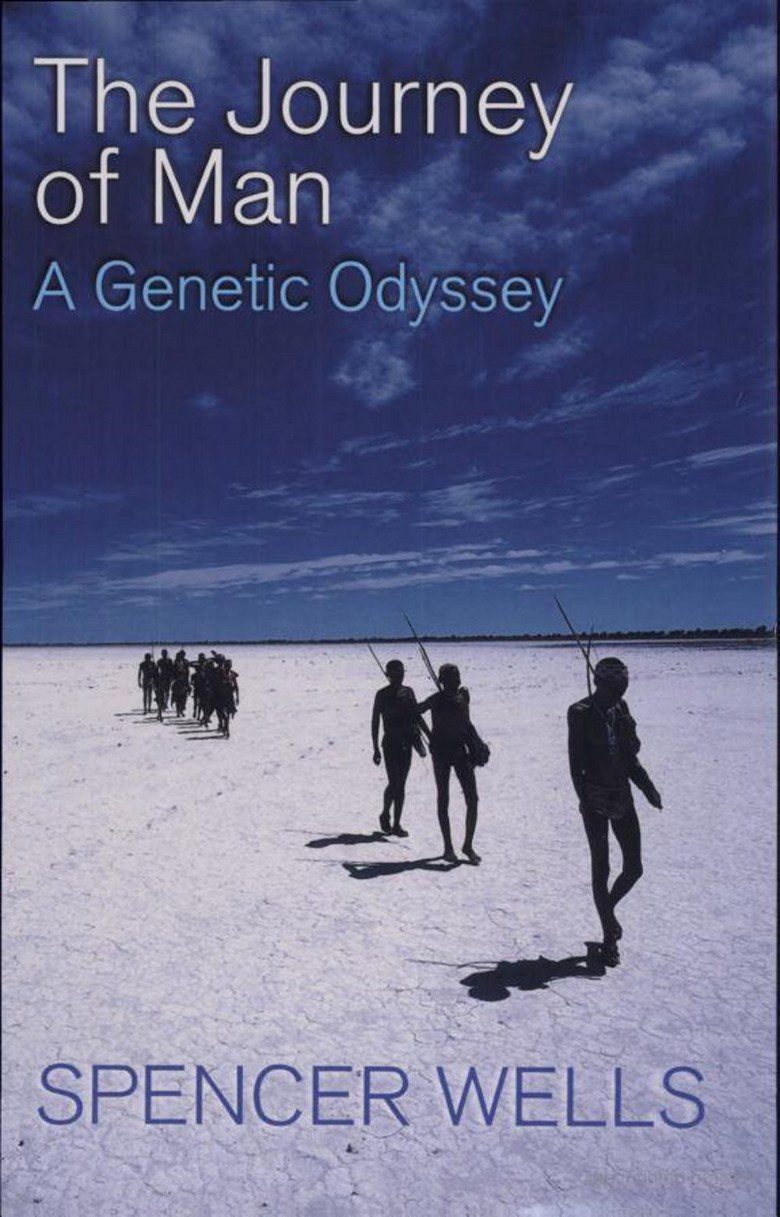
Where did mankind come from originally, how did it spread across the continents, and when did this take place? This question has fascinated us since – upon observing mankind’s ‘racial diversity’ – we started disbelieving our parochial foundation myths. At first, the occasional old bone and scattered artefact was our only guide to answering these questions. Anthropology followed by re-tracing the evolution of cultures over time. Then came linguistics – suggesting a way back from today’s cacophony of languages to a likely Ur-language the human ape first spoke. Now genetics has joined them in the fray and delivered novel answers. Each of these disciplines throws up conjectures that the others verify independently – we make ‘pre-dictions’ to be tested in the field. When the results turn out to be positive, we feel more confirmed in our way of thinking.
How can genetics contribute to mankind’s history? Dante’s manuscript of the Divina Commedia is lost. We have about 600 handwritten copies. How do we know which is the closest to the original – hence more ‘genuine’? Look for copying mistakes is an answer. If a number of manuscripts share the same mistake, they are more likely to have been copied from each other than from anyone of the rest. We can skilfully establish a sort of genealogy of mistakes, and thanks to this strange tree, the genealogy of the manuscripts. Of course this is not ‘experimental’ proof (two copiers could have made the same mistake independently, or the error may have been corrected): just the application of Ockham’s razor – the principle of parsimony. The simplest explanation is the most likely, says this principle: natura non facit saltum.
Every man and woman carries within himself a manuscript, the genetic code. Over the years small copying errors occur, about thirty in each generation, which are mostly harmless to the individual but mark the passage of time. If the population is small and mates locally, it takes only a few generations before drastic gene frequency changes may occur – the individual’s marker spreads throughout his group and identifies it. If we are skilful, we can identify these groups and, through DNA analysis of the descendants, track their meanderings around the world. Recent advances in technology allow us to do this fast and reliably.
The concept of race never enters the methodology. For, firstly we would like to revert to the races’ origins – the initial ‘soup’ frown which they ‘emerged’. Secondly, upon closer statistical analysis of our genes the concept of ‘race’ proves to be empty: in humans about 85% of all genetic variation is found within the race, and only 8% between the races.
The main problem is that sex blurs the genetic variation picture quickly through recombination, so the markers diffuse rapidly and loose the function we would like to assign to them. We need markers that remain stable over time – untouched by sex. We have markers (polymorphisms) on the man’s Y chromosome, which is transmitted unchanged from father to son. On the female side we have markers in the mitochondria, the small enclosures in the cells that produce energy. This genetic material (mtDNA) is transmitted untouched from mother to offspring in the egg material that surrounds our chromosomes. Clever collection of these ‘virgin’ strands of genetic material from the descendants allows us to follow our foremothers and -fathers on their worldwide migration.
The markers on the Y-chromosome allow us to go back about 60,000 years – after that the signal is blurred. The female M-marker takes us back to about 150,000. So what’s the likely story on our last 60,000 years?
All disciplines concur: Homo sapiens sapiens emerged about 60,000 years ago in Africa. What made the difference? Probably it was the acquisition of language and its associated symbolic perception of the world. Efficient tools, art, and the better use of food resources were the result. Social organisation deepened. Together with natural curiosity climatic change became the driver of expansion at this point.
If Africa was our cradle, Australia was the continent humans settled first – so the genetic markers tell us. How did we get there? Humans simply walked the beaches, exploiting food from both sea and land As the ice age advanced and water became locked in the ice caps, the sea level dropped by over 100m and the exposed swaths of continental shelf brought islands and continents in view of each other and within easy reach of makeshift rafts. Any archaeological trace of this passage would have been subsequently submerged, but for a genetic marker found along the coast of Southern India.
50,000 years ago humans started moving into the Middle East. From there they took the ‘Steppe Highway’ into central Asia and became identified by new genetic markers as Eurasians. They split into two groups, one moving to the north of the Hindu Kush, the other to the south into the Indian subcontinent. Those that went north moved into central Asia – Mongolia and Siberia – as they followed the steppe antelopes only to switch to the bigger game to be found in colder climate (mammoth). Again a split took place, with some groups continuing eastward and others dropping south towards China and Southeast Asia, while others detoured through southern Siberia before descending towards Korea, Japan and China. Genetically, even today northern and southern Chinese are clearly distinct.
And what about the Europeans? Surprisingly, they did not move northwest from the Levant, but circled back from central Asia into Europe, where they became the Cro-Magnons and probably drove the Neanderthals to extinction by excluding them from their food resources – it takes only a reduction in fertility or an increase in mortality of 1 percent to wipe out a small population within 1,000 years. Agriculture as technology on the other hand did indeed move from the Levant directly into Europe – this is what the genes tell us – but not people: 80% of the European gene pool does not come from the Middle East.
Alaska became accessible to a few humans from the eastern Siberian clans (probably less than 500) once the Bering Strait dried up. About 15-12,000 years ago the ice that covered much of the north American continent began to melt, and a passage opened, through which these tiny populations of Siberian hunters expanded south, reaching the tip of South America within 1,000 years. There was another wave of migrants, though, coming up from Southeast Asia, that settled in the American southwest. They speak the Na-Dene languages, which linguistically is a distant cousin of Sino-Tibetan. Linguistics and genetics match.
Despite its rather technical nature the book reads like a mystery novel as it brings up concordant strands of evidence from the different disciplines. Increasingly, the reality matches our ‘pre-dictions’, and we can feel the bog of myth and speculation recede as the scientific ground becomes more solid under our feet.
The book ends on a poignantly pessimistic note. Globalisation has increased mobility. Soon the thorough mixing of the genes, languages and cultures will erase the story of our past. In Federico Fellini’s Roma, the engineers excavating the underground suddenly get a glimpse of rooms that had been remained hermetically sealed for centuries. As they stand in awe before the beauty of the paintings on the walls the air rushing through the opening eats away at the colours and turns everything to grey dust. We are lucky that science has developed methods to record our history before it is thoroughly erased, and that scientists trained these tools on the problem in the nick of time. Spencer Wells, together with many others before him, deserves our gratitude for their deep curiosity.
Review by Aldo Matteucci

You may also be interested in
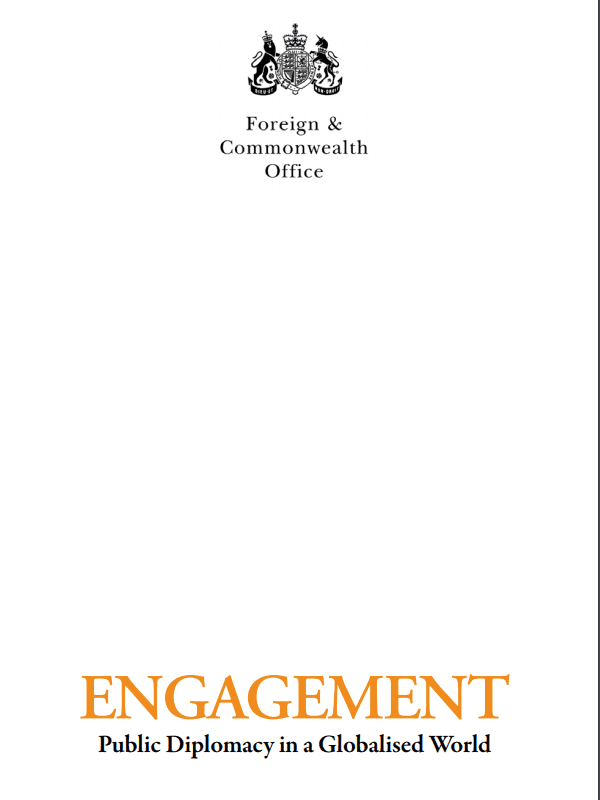
Engagement: Public Diplomacy in a Globalised World
We need a public diplomacy which fits our time. The policy issues which confront us are increasingly global. Systematic engagement with publics both at home and abroad will be required if we are to identify and implement solutions. Policy-makers and diplomats must work with a wider range of constituencies beyond government, moving towards a more open, inclusive style of policy-making and implementation. Understanding of complexity, difference, networks and cultural heritage will be needed, alongside more imaginative use of technology. Engagement, conducted with energy, ambition and cre...

Negotiating Public Health in a Globalized World: Global Health Diplomacy in Action
The text is about the challenges and opportunities of negotiating in the global health diplomacy landscape, emphasizing the importance of collaboration and innovation to address public health issues on a global scale.
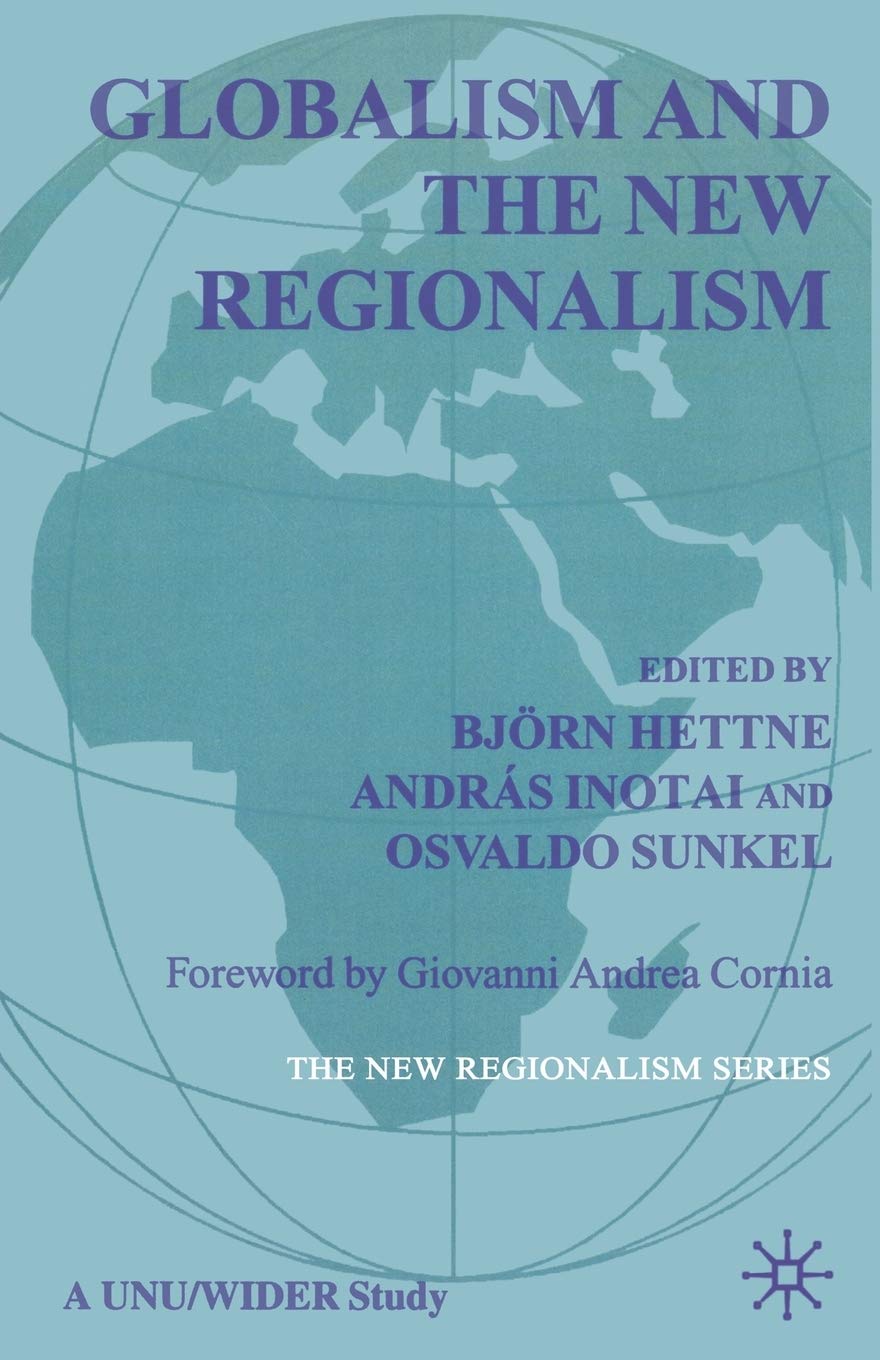
Globalism and the New Regionalism
The text discusses the impact of globalism on the new regionalism trend, emphasizing how regions are increasingly important economically, politically, and culturally in the global landscape. The author explores how global interconnectedness has led to a rise in regional cooperation and integration as a response to globalization, highlighting the various ways in which regions are shaping international relations and global governance.

Diplomacy of tomorrow
The time of diplomacy is far from over. This paper discusses how its role will become ever more central as most important affairs will have to be handled at global, regional and sub-regional levels.
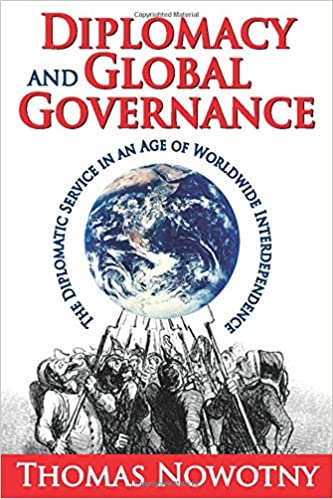
Diplomacy and Global Governance: The Diplomatic Service in an Age of Worldwide Interdependence
The text discusses the role of the diplomatic service in a time of global interdependence. Diplomacy plays a crucial role in ensuring cooperation and effective governance on a global scale, emphasizing the need for diplomatic efforts in maintaining peace and fostering international relations.

Globalization and Governance: Essays on the Challenges for Small States
The text is about the challenges faced by small states in the context of globalization and governance.
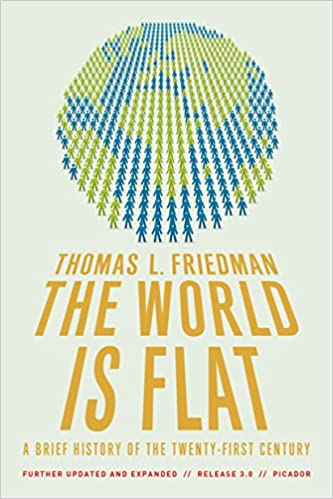
The World Is Flat 3.0: A Brief History of the Twenty-first Century
One mark of a great book is that it makes you see things in a new way, and Mr. Friedman certainly succeeds in that goal," the Nobel laureate Joseph E. Stiglitz wrote in The New York Times reviewing The World Is Flat in 2005. In this new edition, Thomas L. Friedman includes fresh stories and insights to help us understand the flattening of the world. Weaving new information into his overall thesis, and answering the questions he has been most frequently asked by parents across the country, this third edition also includes two new chapters--on how to be a political activist and social entreprene...

The post-modern state and the world order
1989 marked a break in European history. What happened in 1989 went beyond the events of 1789, 1815 or 1919. These dates, like 1989, stand for revolutions, the break-up of empires and the re-ordering of spheres of influence. But these changes took place within the established framework of the balance of power and the sovereign independent state. 1989 was different. In addition to the dramatic changes of that year – the revolutions and the re-ordering of alliances – it marked an underlying change in the European state system itself. To put it crudely, what happened in 1989 was not jus...
If God ever gave mankind a mission – it was not so much to multiply as to walk. And walk we did, to the farthest corners of the earth. Homo sapiens sapiens is the only mammal to have spread from its place of origin, Africa, to every other continent – before settling down to sedentary life ogling a TV screen or monitor, that is.
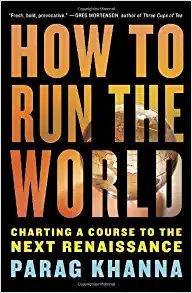
How to Run the World: Charting a Course to the Next Renaissance
The book "How to Run the World: Charting a Course to the Next Renaissance" presents a blueprint for solving global problems by leveraging networks of individuals and organizations. It explores the potential for a new era of collaboration and innovation to address pressing issues on a global scale, highlighting the power of interconnectedness and collective action in shaping a better future for all.

Small Economies in the Face of Globalisation
The text discusses the challenges faced by small economies in the era of globalization, highlighting the need for strategies to navigate and thrive in this interconnected world.
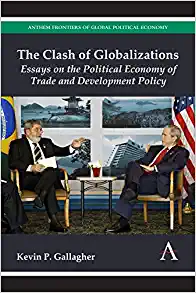

The Clash of Globalizations: Essays on the Political Economy of Trade and Development Policy
The Clash of Globalizations: Essays on the Political Economy of Trade and Development Policy explores the tensions between different approaches to globalization, examining how they impact trade and development policy.

Contemporary Diplomacy: Representation and Communication in a Globalized World
The text discusses how diplomacy has evolved in the present globalized world, focusing on representation and communication.
Diplo: Effective and inclusive diplomacy
Diplo is a non-profit foundation established by the governments of Malta and Switzerland. Diplo works to increase the role of small and developing states, and to improve global governance and international policy development.

Diplo on Social
Want to stay up to date.
Subscribe to more Diplo and Geneva Internet Platform newsletters!

Search for: Search Button
The Journey of Man: A Genetic Odyssey
by David B | Apr 14, 2024 | Videos

In the groundbreaking documentary ‘The Journey of Man: A Genetic Odyssey’, geneticist Spencer Wells examines the universal genetic patterns of all humans alive today and reveals an amazing discovery – that we are all descendants of a single man who walked the Earth over 60,000 years ago.
This remarkable finding was determined through Wells’ in-depth analysis of DNA samples taken from individuals across the globe. After making this connection, Wells is able to trace back the entire history of human migration on Earth and show how our species expanded from a single source. This incredible journey includes extraordinary insight into how society has changed and evolved throughout its existence.
The documentary itself is an impressive production, narrated by Wells himself, using cutting-edge visuals and animation to bring his discoveries to life. Through multiple interviews, Wells shares his theories on where our ancestors originated, as well as how early populations spread out across the world. As he visits ancient cultures in Africa, Asia, Europe and more, viewers get a chance to experience first-hand how humanity’s roots reach far beyond any one culture or region.
The conclusion reached by Spencer Wells about our common ancestor is both fascinating and at times hard to comprehend – it is truly awe-inspiring to consider that every human being alive today can be traced back to one man who lived thousands of years ago. For anyone looking for an illuminating exploration into our shared past, ‘The Journey of Man: A Genetic Odyssey’ provides an enthralling look at humanity’s origin story. It is sure to captivate audiences around the world with its insights into our collective heritage – so don’t miss it!
- Activism (181)
- Aliens/UFO (40)
- Animales (2)
- Animals (313)
- Artes escénicas (1)
- Articles (831)
- Aviation (106)
- Beauty (49)
- Best Of (1,472)
- Business (229)
- Celebrities (338)
- Comedy (28)
- Conspiracy (354)
- Crime (815)
- Cultura (4)
- Culture (426)
- Deportes (1)
- Disaster (87)
- Drugs (240)
- Economics (281)
- Education (25)
- Environmental (1,091)
- Extraterrestres/OVNIs (1)
- Famosos (1)
- Filosofía (1)
- Finance (60)
- Food/Drink (249)
- Gambling (53)
- Gaming (88)
- Geography (49)
- Health (597)
- Historia (4)
- History (1,152)
- Justice (91)
- Lifestyle (473)
- Lo mejor de (19)
- Media (223)
- Medicine (101)
- Militar/Guerra (1)
- Military/War (619)
- Movies (176)
- Music (466)
- Nature (683)
- People (1,699)
- Performing Arts (95)
- Personal Triumphs (154)
- Personas (1)
- Philosophy (101)
- Political (549)
- Religión (2)
- Religion (389)
- Science (791)
- Sexuality (108)
- Sin categorizar (1)
- Social (1,675)
- Sports (397)
- Strange (145)
- Technology (646)
- TOP 100 (31)
- Travel (226)
- Uncategorized (4)
- Videos (8,694)
- Now Playing
- Airing Today
- Popular People
- Discussions
- Leaderboard
- Alternative Titles
- Cast & Crew
- Release Dates
- Translations
- Backdrops 1
- Login to Add a Video
- Content Issues 0

The Journey of Man: A Genetic Odyssey (2003)
Login to use TMDB's new rating system.
Welcome to Vibes, TMDB's new rating system! For more information, visit the contribution bible .
Many geneticists and archaeologists have long surmised that human life began in Africa. Dr. Spencer Wells, one of a group of scientists studying the origin of human life, offers evidence and theories to support such a thesis in this PBS special. He claims that Africa was populated by only a few thousand people that some deserted their homeland in a conquest that has resulted in global domination.
We don't have any crew added to this movie. You can help by adding some!
Top Billed Cast
We don't have any cast added to this movie. You can help by adding some!
Login to Edit Cast & Crew
- Discussions 0
We don't have any reviews for The Journey of Man: A Genetic Odyssey.
- Most Popular
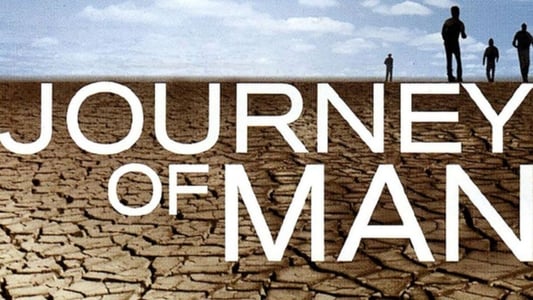
Status Released
Original Language English
- natural history
Content Score
We're so close, yet so far.
Looks like we're missing the following data in en-US or en-US ...
- Cast (4 or more)
Top Contributors
13 mikesean
4 LIGHTSandSOUND
View Edit History
Popularity Trend
Login to edit
Keyboard Shortcuts
Login to report an issue
You need to be logged in to continue. Click here to login or here to sign up.
Can't find a movie or TV show? Login to create it.
On media pages
On tv season pages, on tv episode pages, on all image pages, on all edit pages, on discussion pages.
Want to rate or add this item to a list?
Not a member?
Sign up and join the community

- Kindle Store
- Kindle eBooks
- Politics & Social Sciences

Download the free Kindle app and start reading Kindle books instantly on your smartphone, tablet, or computer - no Kindle device required .
Read instantly on your browser with Kindle for Web.
Using your mobile phone camera - scan the code below and download the Kindle app.

Image Unavailable

- To view this video download Flash Player
Follow the authors

The Journey of Man: A Genetic Odyssey Kindle Edition
Around 60,000 years ago, a man, identical to us in all important respects, walked the soil of Africa. Every man alive today is descended from him. How did he come to be father to all of us - a real-life Adam? And why do we come in such a huge variety of sizes, shapes, types and races if we all share a single prehistoric ancestor? In this fascinating book, Spencer Wells shows how the truth about our ancestors is hidden in our genetic code, and reveals how developments in the cutting-edge science of population genetics have made it possible not just to discover where our ancestors lived (and who they may have fought, loved, learned from and influence) but to create a family tree for the whole of humanity.
- Print length 230 pages
- Language English
- Sticky notes On Kindle Scribe
- Publisher Penguin
- Publication date May 29, 2003
- File size 222117 KB
- Page Flip Enabled
- Word Wise Enabled
- Enhanced typesetting Enabled
- See all details
Editorial Reviews
Amazon.com review, from publishers weekly, from the inside flap.
"Written with much verve, easy to read, and up-to-date on many important developments."--Luigi Luca Cavalli-Sforza, Stanford University, author of The History and Geography of Human Genes and Genes, Peoples, and Languages .
"Spencer Wells, whose genetic work has contributed to our understanding of human prehistory, has provided the lay reader with an account of the spread and mixing of the human species from its origin in Africa that is both scientifically accurate and accessible to the nonscientist. In achieving that accessibility, he has not made the common error of confusing simple explanations with simplistic ones. Most important, Wells has the intellectual integrity, all too rare in popularizations of science, to distinguish what is really known from what is only speculation."--Richard Lewontin, Harvard University, author of It Ain't Necessarily So: The Dream of the Human Genome and Other Illusions .
From the Back Cover
"Written with much verve, easy to read, and up-to-date on many important developments." --Luigi Luca Cavalli-Sforza, Stanford University, author of The History and Geography of Human Genes and Genes, Peoples, and Languages .
"Spencer Wells, whose genetic work has contributed to our understanding of human prehistory, has provided the lay reader with an account of the spread and mixing of the human species from its origin in Africa that is both scientifically accurate and accessible to the nonscientist. In achieving that accessibility, he has not made the common error of confusing simple explanations with simplistic ones. Most important, Wells has the intellectual integrity, all too rare in popularizations of science, to distinguish what is really known from what is only speculation." --Richard Lewontin, Harvard University, author of It Ain't Necessarily So: The Dream of the Human Genome and Other Illusions .
About the Author
Product details.
- ASIN : B002RI989W
- Publisher : Penguin; New Ed edition (May 29, 2003)
- Publication date : May 29, 2003
- Language : English
- File size : 222117 KB
- Text-to-Speech : Enabled
- Screen Reader : Supported
- Enhanced typesetting : Enabled
- X-Ray : Not Enabled
- Word Wise : Enabled
- Sticky notes : On Kindle Scribe
- Print length : 230 pages
- #357 in Physical Anthropology (Kindle Store)
- #743 in Genetic Science
- #1,079 in Anatomy Science
About the authors
Discover more of the author’s books, see similar authors, read author blogs and more
Spencer Wells
Spencer Wells is an Explorer-in-Residence at the National Geographic Society and Frank H. T. Rhodes Class of '56 Professor at Cornell University. He leads the Genographic Project, which is collecting and analyzing hundreds of thousands of DNA samples from people around the world in order to decipher how our ancestors populated the planet. Wells received his Ph.D. from Harvard University and conducted postdoctoral work at Stanford and Oxford. He has written three books, The Journey of Man, Deep Ancestry, and Pandora's Seed. He lives in Washington, D.C. with his wife, a documentary filmmaker.
Customer reviews
- 5 star 4 star 3 star 2 star 1 star 5 star 66% 24% 7% 3% 1% 66%
- 5 star 4 star 3 star 2 star 1 star 4 star 66% 24% 7% 3% 1% 24%
- 5 star 4 star 3 star 2 star 1 star 3 star 66% 24% 7% 3% 1% 7%
- 5 star 4 star 3 star 2 star 1 star 2 star 66% 24% 7% 3% 1% 3%
- 5 star 4 star 3 star 2 star 1 star 1 star 66% 24% 7% 3% 1% 1%
Customer Reviews, including Product Star Ratings help customers to learn more about the product and decide whether it is the right product for them.
To calculate the overall star rating and percentage breakdown by star, we don’t use a simple average. Instead, our system considers things like how recent a review is and if the reviewer bought the item on Amazon. It also analyzed reviews to verify trustworthiness.
Customers say
Customers find the book very readable and not too technical. They also find the content sufficiently informative and strong, with a hugely interesting story and great description of early migration out of Africa. Customers also describe the overall quality as easy to read and well presented.
AI-generated from the text of customer reviews
Customers find the book readable, with credible arguments presented in a very readable way. They also appreciate the succinct and supporting documentation for the use of the Y. Readers also mention that the book is not difficult to follow.
"...It is a well written book ...." Read more
"...It is not difficult to follow if you don't try to remember all the data...." Read more
"Great book and very well written . I am a professional cultural anthropologist who just retired after 42 years of teaching...." Read more
"...speed at which the material can be absorbed, are the many geographical references to places that most people have never heard about, be they in..." Read more
Customers find the book sufficiently informative, well-written, and based in hard science. They also say the author stays on top of his topic and makes it easy to understand the complex genetic story of humankind. Readers also say that the book works to bring clarity to ancient DNA and makes a very strong argument.
"...All in all, I think Wells has given an excellent and simple survey of the subject , accessible to anybody who wishes to follow the author on this..." Read more
"...However, it is fascinating in how it traces our ancestory and demonstrates genetic proofs of our journey around the world...." Read more
"...bringing the findings of several disciplines together to make a very strong argument ...." Read more
"...Pros: Nice primer into the field of genetic history , neither too scholarly nor too superficial...." Read more
Customers find the story interesting, easy to read, and detailed. They also appreciate the great description of early human migration and the science behind it.
"...DNA and all the scientific jargon there is of course a hugely interesting story ...." Read more
"... Interesting . Worth the read. Aimed at the Lay reader. I am glad I read the book...." Read more
"The Journey of Man is one of the most exciting detective stories I've ever read!..." Read more
"The Journey of man is easy to read and an exciting story of discovery ...." Read more
Customers find the book easy to read, well presented, and fascinating. They also say the title describes the book perfectly.
"...I'd also like to mention the very useful drawing of the "M-tree" on page 181, and the world-map with migration routes on pages 182-183...." Read more
"...Did I mention the wonderful photographs ?" Read more
"...The illustrations are particularly useful and I bookmarked some important ones to serve as a constant reference during my reading...." Read more
"...The title describes the book perfectly . All in all It gives a thorough enough account for the lay person of mans journey out of Africa...." Read more
Reviews with images

- Sort reviews by Top reviews Most recent Top reviews
Top reviews from the United States
There was a problem filtering reviews right now. please try again later..
Top reviews from other countries
Report an issue
- Amazon Newsletter
- About Amazon
- Accessibility
- Sustainability
- Press Center
- Investor Relations
- Amazon Devices
- Amazon Science
- Sell on Amazon
- Sell apps on Amazon
- Supply to Amazon
- Protect & Build Your Brand
- Become an Affiliate
- Become a Delivery Driver
- Start a Package Delivery Business
- Advertise Your Products
- Self-Publish with Us
- Become an Amazon Hub Partner
- › See More Ways to Make Money
- Amazon Visa
- Amazon Store Card
- Amazon Secured Card
- Amazon Business Card
- Shop with Points
- Credit Card Marketplace
- Reload Your Balance
- Amazon Currency Converter
- Your Account
- Your Orders
- Shipping Rates & Policies
- Amazon Prime
- Returns & Replacements
- Manage Your Content and Devices
- Recalls and Product Safety Alerts
- Registry & Gift List
- Conditions of Use
- Privacy Notice
- Consumer Health Data Privacy Disclosure
- Your Ads Privacy Choices

Call us (08:30-17:00 UK)
International, wildlife survey & monitoring, practical conservation equipment, academic & professional books, field guides & natural history.

UK Delivery 1p
UK mainland standard delivery just 1p, for in stock book only orders over £30. Offer ends midnight 1.9.24
- Bat Survey & Monitoring
- Passive Full Spectrum Bat Detectors
- Beginners Bat Detectors
- %20Bat%20Traps%20%26%20Nets">Bat Traps & Nets
- Mammal Survey & Monitoring
- %20Large%20Mammal%20Nets%20and%20Traps">Large Mammal Traps & Nets
- %20Small%20Mammal%20Traps">Small Mammal Traps
- %20Telemetry">Telemetry
- Wildlife Photography
- %20Trail%20Cameras">Trail Cameras
- %20Wildlife%20CCTV%20Cameras">Wildlife CCTV Cameras
- %20TriggerSmart%20Camera%20Triggers">DSLR Camera Triggers
- Microscopes & Hand Lenses
- %20Hand%20Lenses">Hand Lenses
- %20Digital%20Microscopes">Digital Microscopes
- %20Stereo%20Microscopes">Stereo Microscopes
- Aquatic Survey & Monitoring
- %20Professional%20Hand%20%26%20Kick%20Nets">Professional Hand & Kick Nets
- %20Water%20Testing">Water Testing
- %20Waders%20%26%20Aquatic%20Safety">Waders & Aquatic Safety
- Plant Survey
- %20Tree%20Survey%20Equipment">Tree Survey Equipment
- %20Quadrats%20%26%20Point%20Frames">Quadrats & Point Frames
- %20Botanical%20Presses%20%26%20Accessories">Botanical Presses & Accessories
- %20Binoculars">Binoculars
- %20Endoscopes%20%26%20Accessories">Endoscopes & Accessories
- %20Thermal%20Imaging">Thermal Imaging Scopes
- Amphibian & Reptile Survey
- %20Amphibian%20Survey%20%26%20Monitoring">Amphibian Survey & Monitoring
- %20Reptile%20Survey%20%26%20Monitoring">Reptile Survey & Monitoring
- %20Scales%2C%20Balances%20%26%20Holding%20Bags">Scales, Balances & Holding Bags
- %20Insect%20Nets%20%26%20Beating%20Trays">Insect Nets & Beating Trays
- %20Moth%20Traps">Moth Traps
- %20Insect%20Rearing%20>%20Insect%20Cages">Insect Rearing Cages
- Ornithology & Bird Ringing
- %20Sound%20Recording">Sound Recording
- %20Mist%20Nets">Mist Nets
- %20Bird%20Survey%20Equipment">Bird Survey Equipment
- Environmental Survey & Monitoring
- %20Dataloggers">Dataloggers
- %20Thermometers">Thermometers
- %20Soil%20Survey">Soil Survey
- Field Study Equipment
- %20Lamps%20%26%20Torches">Lamps & Torches
- %20GPS%20%26%20Landscape%20Survey">GPS & Landscape Survey
- %20Field%20Stationery">Field Stationery
- %20Woodcrete%20%26%20WoodStone%20Bird%20Boxes">Woodcrete & WoodStone Bird Boxes
- %20Bird%20Boxes%20for%20Walls%20%26%20Fences">Bird Boxes for Walls & Fences
- %20Integrated%20Bird%20Boxes">Integrated Bird Boxes
- %20Pond%20Dipping%20%26%20Rock%20Pooling">Pond Dipping & Rock Pooling
- %20Classroom%20%26%20Laboratory">Classroom & Laboratory
- %20Field%20Studies%20Essentials">Field Studies Essentials
- Habitat Management Tools
- %20Saws">Saws
- %20Measuring%20Equipment">Measuring Equipment
- %20Marking%20Tape%20%26%20Marking%20Flags">Marking Tape & Marking Flags
- %20Woodcrete%20%26%20WoodStone%20Bat%20Boxes">Woodcrete & WoodStone Bat Boxes
- %20Bat%20Boxes%20for%20External%20Walls">Bat Boxes for External Walls
- %20Integrated%20Bat%20Boxes">Integrated Bat Boxes
- Other Nest Boxes, Habitats & Feeders
- %20Insect%20Boxes">Insect Boxes
- %20Mammal%20Boxes">Mammal Boxes
- %20Frog%20%26%20Toad%20Habitats">Frog & Toad Habitats
- Wildlife Management
- %20Badger%20Gates%20%26%20Fencing">Badger Gates & Fencing
- %20Invasive%20Species%20Control">Invasive Species Control
- %20Amphibian%20%26%20Reptile%20Fencing">Amphibian & Reptile Fencing
- %20Non-Passerines">Non-passerines
- %20Passerines">Passerines
- %20World%20Lists%20%26%20Handbooks">World Lists & Handbooks
- Insects & other Invertebrates
- %20Insects">Insects
- %20Arthropods%20%28excl.%20insects%29%20>%20Spiders%2C%20Scorpions%2C%20Ticks%20%26%20Mites%20%28Arachnids%29">Spiders
- %20Other%20Invertebrates">Other Invertebrates
- Marine & Freshwater
- %20Fishes">Fish Identification Guides
- %20Marine%20Identification%20Guides">Marine Identification Guides
- %20Freshwater%20Identification%20Guides">Freshwater Identification Guides
- Habitats & Ecosystems
- %20Forests%20%26%20Wetlands">Forests & Wetlands
- %20Coasts%20%26%20Islands">Coasts & Islands
- %20Urban%20%26%20Built%20Environment">Urban & Built Environment
- Natural History
- %20Biography%2C%20Exploration%20%26%20Travel">Biography, Exploration & Travel
- %20General%20Natural%20History">General Natural History
- %20History%20of%20Science%20%26%20Nature">History of Science
- %20Bats%20%28Chiroptera%29">Bats
- %20Marine%20Mammals">Marine Mammals
- %20Primates">Primates
- Reptiles & Amphibians
- %20Reptiles">Reptile Field Guides
- %20Amphibians">Amphibian Field Guides
- %20Reptiles%20%26%20Amphibians%3A%20General">Herpetology Handbooks
- %20Vascular%20Plants%20>%20Orchids">Orchids
- %20Vascular%20Plants%20>%20Trees%20%26%20Shrubs">Trees & Shrubs
- %20Vascular%20Plants%20>%20Grasses%2C%20Sedges%2C%20Rushes%20%26%20Ferns">Grasses, Sedges, Rushes, & Ferns
- %20Parks%20%26%20Protected%20Areas">Parks & Protected Areas
- %20Parks%20%26%20Protected%20Areas">Americas
- %20Parks%20%26%20Protected%20Areas">Europe & the Mediterranean
- %20Parks%20%26%20Protected%20Areas">Asia
- %20Parks%20%26%20Protected%20Areas">View All
- %20Mammal%20Monographs">Monographs
- %20Mammal%20Atlases%20%26%20Faunas">Atlases & Faunas
- %20Mammal%20Biology%20%26%20Ecology">Biology & Ecology
- %20Reptile%20%26%20Amphibian%20Monographs">Monographs
- %20Reptile%20%26%20Amphibian%20Atlases%20%26%20Faunas">Atlases & Faunas
- %20Reptile%20%26%20Amphibian%20Biology%20%26%20Ecology">Biology & Ecology
- Evolutionary Biology
- %20Evolution">Evolution
- %20Human%20Evolution%20%26%20Anthropology">Human Evolution & Anthropology
- %20Cladistics%2C%20Phylogeny%2C%20Phenology%20%26%20Taxonomy">Cladistics, Phylogeny & Taxonomy
- Conservation & Biodiversity
- %20Conservation%20Biology">Conservation Biology
- %20Species%20Conservation%20%26%20Care">Species Conservation & Care
- %20Habitat%20Management%20%26%20Care">Habitat Management & Care
- Environmental & Social Studies
- %20Economics%2C%20Politics%20%26%20Policy">Economics, Politics & Policy
- %20Natural%20Resource%20Use%20%26%20Depletion">Natural Resource Use & Depletion
- %20Climate%20Change">Climate Change
- Ornithology
- %20Biology%2C%20Ecology%20%26%20Behaviour">Biology, Ecology & Behaviour
- %20Conservation%2C%20Care%20%26%20Monitoring">Conservation, Care & Monitoring
- %20Taxonomy%20%26%20Nomenclature">Taxonomy & Nomenclature
- Marine & Freshwater Biology
- %20Fishes">Fishes
- %20Marine%20Biology">Marine Biology
- %20Freshwater%20Biology">Freshwater Biology
- %20Behavioural%20Ecology">Behavioural Ecology
- %20Population%20%26%20Community%20Ecology">Population & Community Ecology
- %20Ecosystem%20%26%20Landscape%20Ecology">Ecosystem & Landscape Ecology
- Earth System Sciences
- %20Lithosphere">Lithosphere
- %20Hydrosphere">Hydrosphere
- %20Atmosphere">Atmosphere
- History & other Humanities
- %20History%20of%20Science%20%26%20Nature">History of Science & Nature
- %20Environmental%20History">Environmental History
- %20Philosophy%2C%20Ethics%20%26%20Religion">Philosophy, Ethics & Religion
- %20Invertebrate%20Monographs">Monographs
- %20Invertebrate%20Atlases%20%26%20Faunas">Atlases & Faunas
- %20Invertebrate%20Biology%20%26%20Ecology">Biology & Ecology
- %20Floras%20%26%20Botanical%20Field%20Guides">Floras & Botanical Field Guides
- %20Mycology">Mycology
- %20Economic%20Botany%20%26%20Ethnobotany">Economic Botany & Ethnobotany
- Organismal to Molecular Biology
- %20Ethology">Ethology
- %20Genetics">Genetics
- %20Microbiology">Microbiology
- Palaeontology
- %20Palaeozoology%20%26%20Extinctions">Palaeozoology & Extinctions
- %20Palaeobotany">Palaeobotany
- %20Palaeoclimatology">Palaeoclimatology
- %20Data%20Analysis%20%26%20Modelling">Data Analysis & Modelling
- %20Editing%20%26%20Writing">Editing & Writing
- %20Collections%20Management">Collections Management
- Good Reads on Evolution
- Richard Dawkins
- Edward O. Wilson
- Matt Ridley
- Nature Writing
- Peter Marren
- Marianne Taylor
- Richard Mabey
- Environmental History
- Brian Fagan
- Jared Diamond
- Oliver Rackham
- Nature Writing Classics
- Gilbert White
- Aldo Leopold
- Palaeontology Good Reads
- Donald R. Prothero
- Michael J. Benton
- Richard Fortey
- Conservation Good Reads
- Michael McCarthy
- Rachel Carson
- Dave Goulson
- Popular Science
- Tim Birkhead
- Sean B. Carroll
- Yuval Noah Harari
- Environmental Issues
- James Lovelock
- Dieter Helm
- Biography, Exploration & Travel
- Alfred Russel Wallace
- Sir David Attenborough
British Wildlife

British Wildlife is the leading natural history magazine in the UK, providing essential reading for both enthusiast and professional naturalists and wildlife conservationists. Published eight times a year, British Wildlife bridges the gap between popular writing and scientific literature through a combination of long-form articles, regular columns and reports, book reviews and letters.
Conservation Land Management

Conservation Land Management (CLM) is a quarterly magazine that is widely regarded as essential reading for all who are involved in land management for nature conservation, across the British Isles. CLM includes long-form articles, events listings, publication reviews, new product information and updates, reports of conferences and letters.

The Journey of Man A Genetic Odyssey
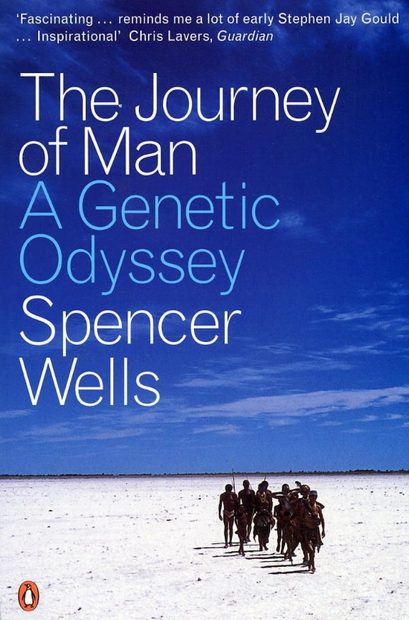
About this book
Around 60,000 years ago, a man – identical to us in all important respects – lived in Africa. Every person alive today is descended from him. How did this real-life Adam wind up father of us all? What happened to the descendants of other men who lived at the same time? And why, if modern humans share a single prehistoric ancestor, do we come in so many sizes, shapes, and races? Showing how the secrets about our ancestors are hidden in our genetic code, Spencer Wells reveals how developments in the cutting-edge science of population genetics have made it possible to create a family tree for the whole of humanity. We now know not only where our ancestors lived but who they fought, loved, and influenced. Informed by this new science, The Journey of Man is replete with astonishing information. Wells tells us that we can trace our origins back to a single Adam and Eve, but that Eve came first by some 80,000 years. We hear how the male Y-chromosome has been used to trace the spread of humanity from Africa into Eurasia, why differing racial types emerged when mountain ranges split population groups, and that the San Bushmen of the Kalahari have some of the oldest genetic markers in the world. We learn, finally with absolute certainty, that Neanderthals are not our ancestors and that the entire genetic diversity of Native Americans can be accounted for by just ten individuals. It is an enthralling, epic tour through the history and development of early humankind – as well as an accessible look at the analysis of human genetics that is giving us definitive answers to questions we have asked for centuries, questions now more compelling than ever.
List of Maps xi List of Figures xii Preface xiii Chapter 1: The Diverse Ape 1 Chapter 2: E pluribus unum 14 Chapter 3: Eve's Mate 41 Chapter 4: Coasting Away 61 Chapter 5: Leaps and Bounds 81 Chapter 6: The Main Line 100 Chapter 7: Blood from a Stone 122 Chapter 8: The Importance of Culture 146 Chapter 9: The Final Big Bang 184 Acknowledgements 197 Further Reading 199 Index of Pictures 208 Index 214
Customer Reviews
Spencer Wells is an entrepreneur and an adjunct professor at the University of Texas. He is the author of Deep Ancestry and Pandora's Seed .
" The Journey of Man is fascinating and oozes charm [...] [It] is packed with important insights into our history and our relationships with each other [...] Who needs literature when science is this much fun?" – Chris Lavers, The Guardian "Fortunately for the lay reader, Wells has a knack for clear descriptions and clever analogies to help explain the intricacies of the science involved. Both entertaining and enlightening." – Library Journal "Wells does an excellent job of making complex scientific data accessible and weaves a tapestry of physical anthropology and archaeology as well as linguistics and, of course, genetics to piece together the rise of the agricultural society, the interrelations between far-flung languages, and the eventual settlement of humans into virtually every corner of the globe." – Elise Proulx, East Bay Express "Spencer Wells chronicles the history of genetic population studies, starting with Darwin's puzzlement over the diversity of humanity he saw first-hand from the deck of the Beagle, and ending with the various attempts to classify human variation on the basis of different political and social agendas [...] Wells has an insider's knowledge of the science and its excitement." – Rebecca Cann, Nature " The Journey of Man is the best account available of the story of human origins and dispersals [...] This is a first-class account of a whole new approach to the human story that allows human population history to be reconstructed in an unexpected and convincing way." – Colin Renfrew, The Times Higher Education Supplement " The Journey of Man is a book that should be read, for undeniably the story Wells reveals will transform our understanding of ourselves." – Tim Flannery, New York Review of Books "Written with much verve, easy to read, and up-to-date on many important developments." – Luigi Luca Cavalli-Sforza, Stanford University, author of The History and Geography of Human Genes and Genes, Peoples, and Languages "Spencer Wells, whose genetic work has contributed to our understanding of human prehistory, has provided the lay reader with an account of the spread and mixing of the human species from its origin in Africa that is both scientifically accurate and accessible to the nonscientist. In achieving that accessibility, he has not made the common error of confusing simple explanations with simplistic ones. Most important, Wells has the intellectual integrity, all too rare in popularizations of science, to distinguish what is really known from what is only speculation." – Richard Lewontin, Harvard University, author of It Ain't Necessarily So: The Dream of the Human Genome and Other Illusions


IMAGES
COMMENTS
Terms in this set (9) In the video the Journey of Man, Spencer Wells states that up until _______ years ago, the ancestors of all living humans were living in Africa. 50,000. In the video the Journey of Man, Spencer Wells states that apes first appear in the fossil record around _______ million years ago. 20-30.
Study with Quizlet and memorize flashcards containing terms like blood, geneticist, DNA/ blood type and more. ... The Journey of Man: A Genetic Odyssey Video Questions. 9 terms. juliaalxandr77. Preview. Journey of Man. 34 terms. joyjoymarie. Preview. WW2. 19 terms. kendjohns. Preview. Chapter 13 History Test. 15 terms. Marina_Lawrence1.
What body of water covers part of the route of a migration route? Central Asia. Where humans went before they branched and migrated to Europe and Eastern Asia. 98%. Humans share this amount of DNA with chimps. Primates. We know humans had to migrate to Australia because there are no... Study with Quizlet and memorize flashcards containing terms ...
The Journey of Man: A Genetic Odyssey is a 2002 book by Spencer Wells, an American geneticist and anthropologist, in which he uses techniques and theories of genetics and evolutionary biology to trace the geographical dispersal of early human migrations out of Africa. The book was made into a TV documentary in 2003.
Journey of Man: A Genetic Odyssey. Ratings: 7.29 / 10 from 132 users . A fantastic documentary tracing the earliest human migration on this planet, as shown by our genetic roots. This informative film, full of surprising news, is based on the work of Spencer Wells, who is both innovative scientist and enthusiastic host. He and crew scour the ...
The journey of man : a genetic odyssey by Wells, Spencer, 1969-Publication date 2002 ... Examining the hidden secrets of human evolution in our genetic code, the author reveals how developments in the revolutionary science of population genetics have made it possible to create a family tree for the whole of humanity. Replete with marvelous ...
The Journey of Man: A Genetic Odyssey. Spencer Wells. Random House Trade Paperbacks, 2003 - Science - 218 pages. Around 60,000 years ago, a man—genetically identical to us—lived in Africa. Every person alive today is descended from him. How did this real-life Adam wind up as the father of us all?
193 writers online. Learn More. The Journey of Man, a Genetic Odyssey by Spencer Wells is an informative documentary where the author explains his theory of the origin of man using genetics. The hypothesis is intensely intriguing and, while he presents convincing facts on the matter, I would take the information with a grain of salt.
In particular, the chapters by Templeton and Duster provide an important take on the issue of race and human genetic variation. TODD DISOTELL Department of Anthropology New York University New York, New York DOI: 10.1002/ajhb.20132 f522 BOOK REVIEWS The Journey of Man: A Genetic Odyssey.
world for its evolutionary and historical secrets. The focus has sharpened after genetic scientist Spencer Wells found strains of genes in some communities of Tamil. Nadu that were present in the early man of Africa.In the "Journey of Man" aired by the National Geographic channel, Wells says the first wave of migration of early man from Africa ...
The journey of man : a genetic odyssey Bookreader Item Preview ... The Journey of Man is packed with information: that there was a real Adam and Eve - but that Eve came first by some 80,000 years; that the San of the Kalahari have some of the oldest genetic markers in the world; how the male Y-chromosome has been used to accurately trace the ...
Study with Quizlet and memorize flashcards containing terms like _____ was the "time machine" that was used to learn about ancestors of the human race, According to the movie, the human population originated in . . ., Until _____ yrs ago, the ancestors of all of us was still living in Africa and more. ... The Journey of Man: A Genetic Odyssey ...
Description. Examining the hidden secrets of human evolution in our genetic code, Spencer Wells reveals how developments in the revolutionary science of population genetics have made it possible to create a family tree for the whole of humanity. Replete with marvelous anecdotes and remarkable information, from the truth about the real Adam and ...
The journey of man : a genetic odyssey by Wells, Spencer, 1969-Publication date 2002 Topics Human evolution, Human genetics, Human population genetics Publisher Princeton, N.J. : Princeton University Press Collection internetarchivebooks; printdisabled Contributor Internet Archive Language English
The Journey of Man: A Genetic Odyssey. If God ever gave mankind a mission - it was not so much to multiply as to walk. And walk we did, to the farthest corners of the earth. Homo sapiens sapiens is the only mammal to have spread from its place of origin, Africa, to every other continent - before settling down to sedentary life ogling a TV ...
In the groundbreaking documentary 'The Journey of Man: A Genetic Odyssey', geneticist Spencer Wells examines the universal genetic patterns of all humans alive today and reveals an amazing discovery - that we are all descendants of a single man who walked the Earth over 60,000 years ago.. This remarkable finding was determined through Wells' in-depth analysis of DNA samples taken from ...
The Journey of Man. at random | the modern library | books@random | catalog | email | editors. The Journey of Man: A Genetic Odyssey. by Spencer Wells. Around 60,000 years ago, a man-genetically identical to us-lived in Africa. Every person alive today is descended from him. How did this real-life Adam wind up as the father of us all?
Study with Quizlet and memorize flashcards containing terms like What is the source of the time machine, what population is the oldest lineage of people, what country is san bushman from and more. ... The Journey of Man: A Genetic Odyssey Video Questions. 9 terms. juliaalxandr77. Preview. ANP 370 Exam 2 Authors. 22 terms. MeenaAoude. Preview ...
Many geneticists and archaeologists have long surmised that human life began in Africa. Dr. Spencer Wells, one of a group of scientists studying the origin of human life, offers evidence and theories to support such a thesis in this PBS special. He claims that Africa was populated by only a few thousand people that some deserted their homeland in a conquest that has resulted in global domination.
"Journey of Man: A Genetic Odyssey" is an educational film following American geneticist and anthropologist Spencer Wells as he traces the roots of humanity....
a threadlike structure of nucleic acids and protein found in the nucleus of most living cells, carrying genetic information in the form of genes. Location. Term. Genetic Code. Definition. the nucleotide triplets of DNA and RNA molecules that carry genetic information in living cells. Location.
"The Journey of Man is the best account available of the story of human origins and dispersals."---Colin Renfrew, Times Higher Education Supplement "Wells does an excellent job of making complex scientific data accessible and weaves a tapestry of physical anthropology and archaeology as well as linguistics and, of course, genetics to piece together the rise of the agricultural society, the ...
Buy The Journey of Man (9780691176017) (9780141008325): A Genetic Odyssey: NHBS - Spencer Wells, Princeton University Press